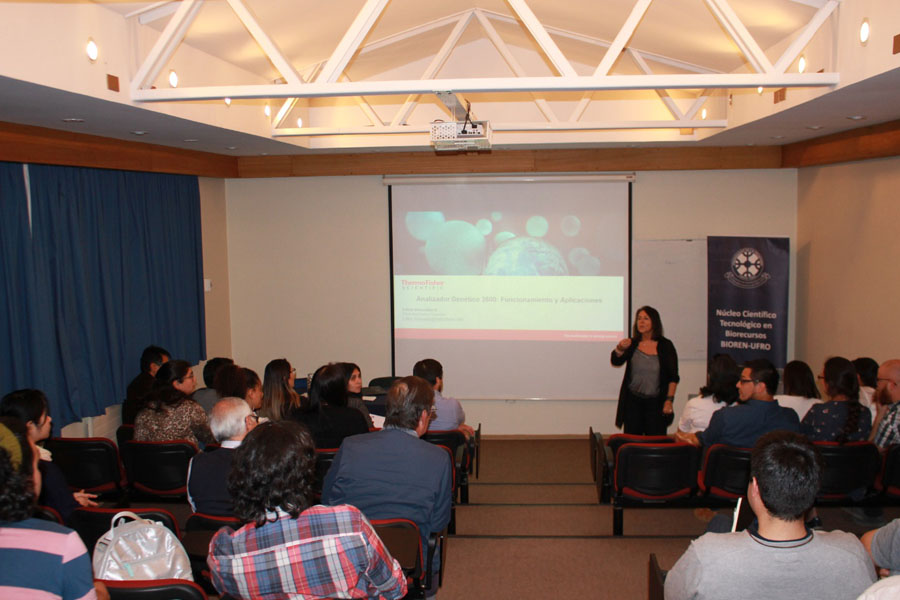|
The FONDEQUIP Project of CONICYT allowed the UFRO to acquire a Sanger Sequencer (genetic analyzer, model 3500) for bioprospecting of organisms in extreme environments in Chile that will allow the NEXER project to continue research in the field of molecular biology. |
It is a positive impulse for scientific research at the Universidad de La Frontera and for its Scientific and Technological Bioresource Nucleus (BIOREN) and the Network for Extreme Environment Research (NEXER). They were awarded with a FONDEQUIP project (EQM170171) that allowed BIOREN to be equipped with the latest technology.
“This equipment is a very useful and versatile tool for microbiology, as well as for research in the fields of cancer, biomedicine, engineering, and molecular biology. It will be available immediately, for different kinds of use, for the group of researchers who are part of BIOREN and the UFRO,” Dr. Milko Jorquera, professor at the Department of Chemical Science and Natural Resources of the UFRO, said, and commented that the equipment will be necessary to work in molecular biology and biotechnology. It will also put a focus on innovation regarding the NEXER Project, which is led by the Universidad de La Frontera. Dr. Maria de la Luz Mora, director of BIOREN, is also part of the challenge. She explained that the Sanger Sequencer 3500 will “strengthen the ohmic science and its scientific processes for undergraduate and postgraduate students that are related to this field, but mainly, it will strengthen the link with the productive sector, because it is an equipment that has to be handled directly, with versatile fields of use, and low-cost applications.” This translates into concrete results, such as animal genotyping or forensic medicine, among other progresses. “The UFRO started to grow when it got in contact with the productive sector and, in this context, we have to keep participating in services which are the basis for applied projects and which allow us to achieve a better link and efficiency regarding the necessities of the community, with a more specific analysis, which bioresources is working on,” the BIOREN-UFRO researcher explained. The Network for Extreme Environment Research, NEXER, is a network of three Chilean universities (U. de Antofagasta, U. de Magallanes and U. de La Frontera) and they are developing interdisciplinary research in genetic
Written by: Communications Office
This email address is being protected from spambots. You need JavaScript enabled to view it. |

